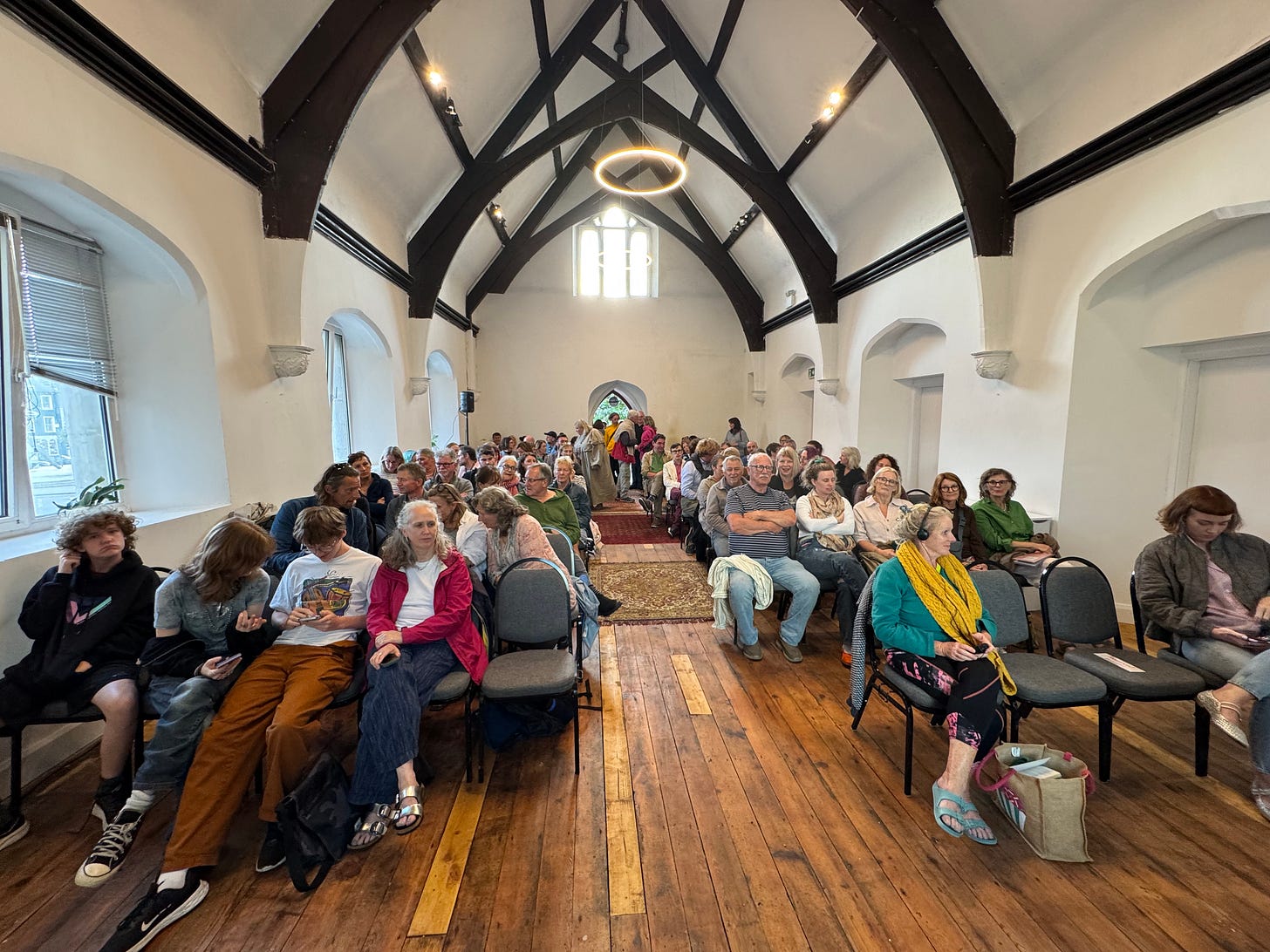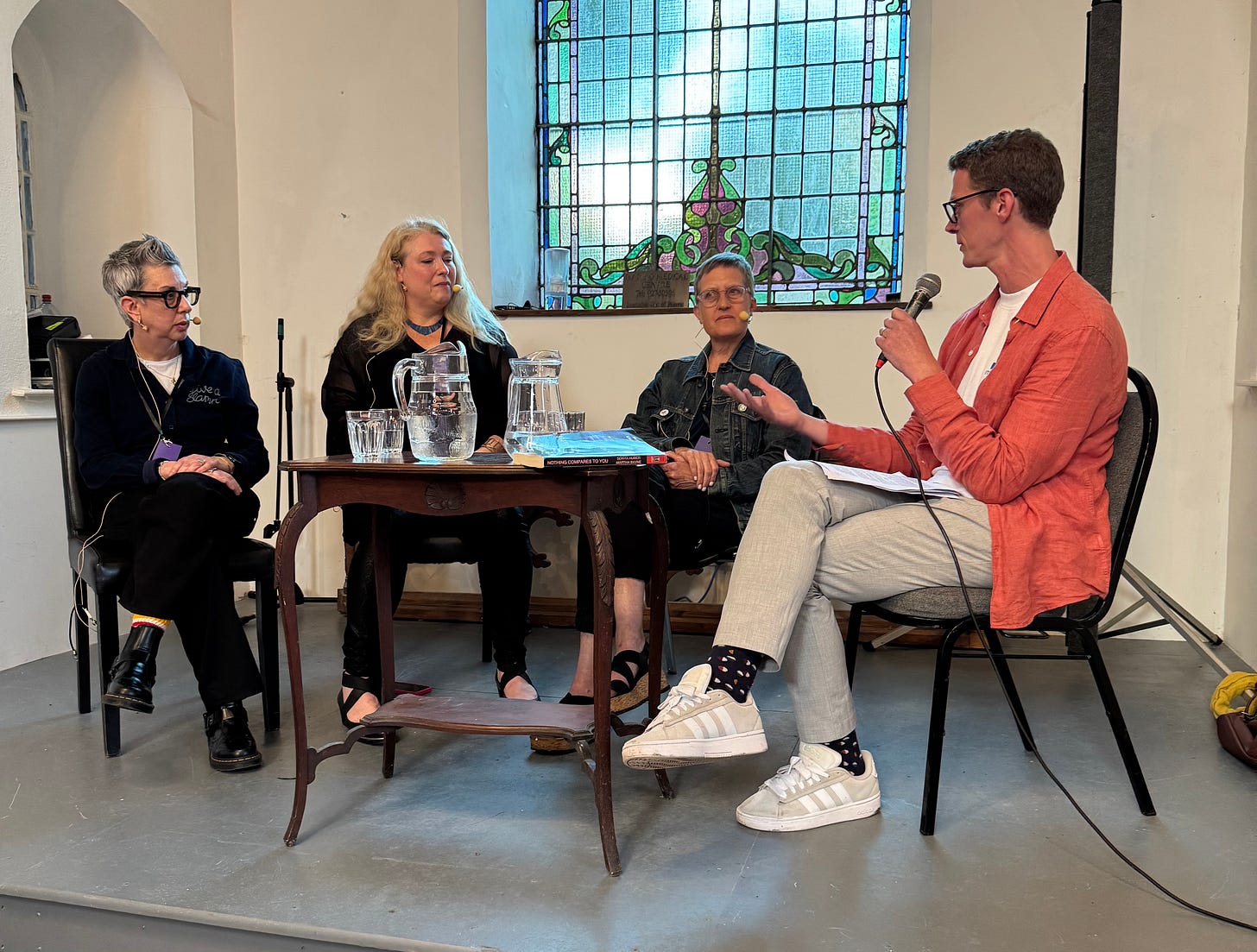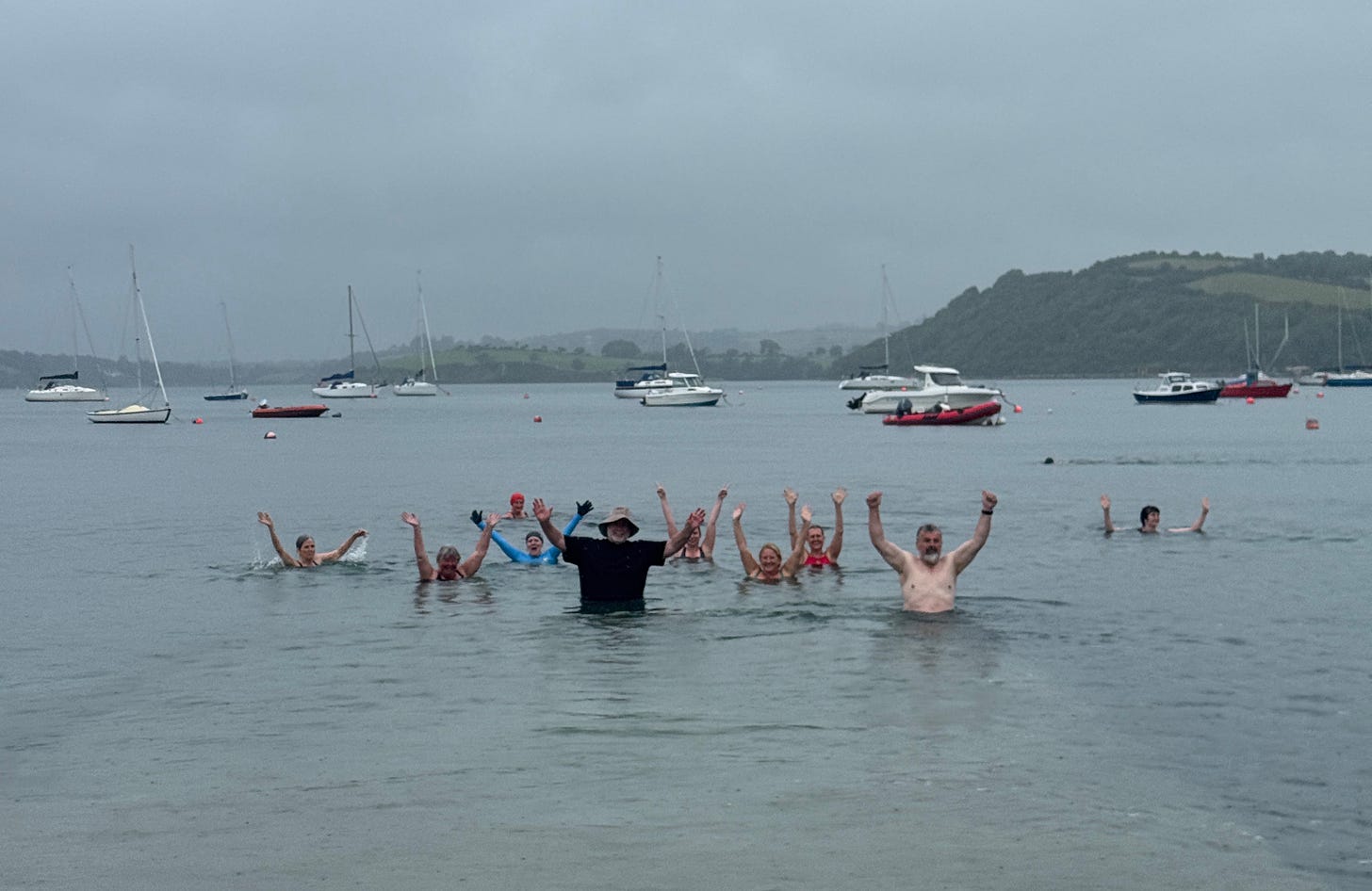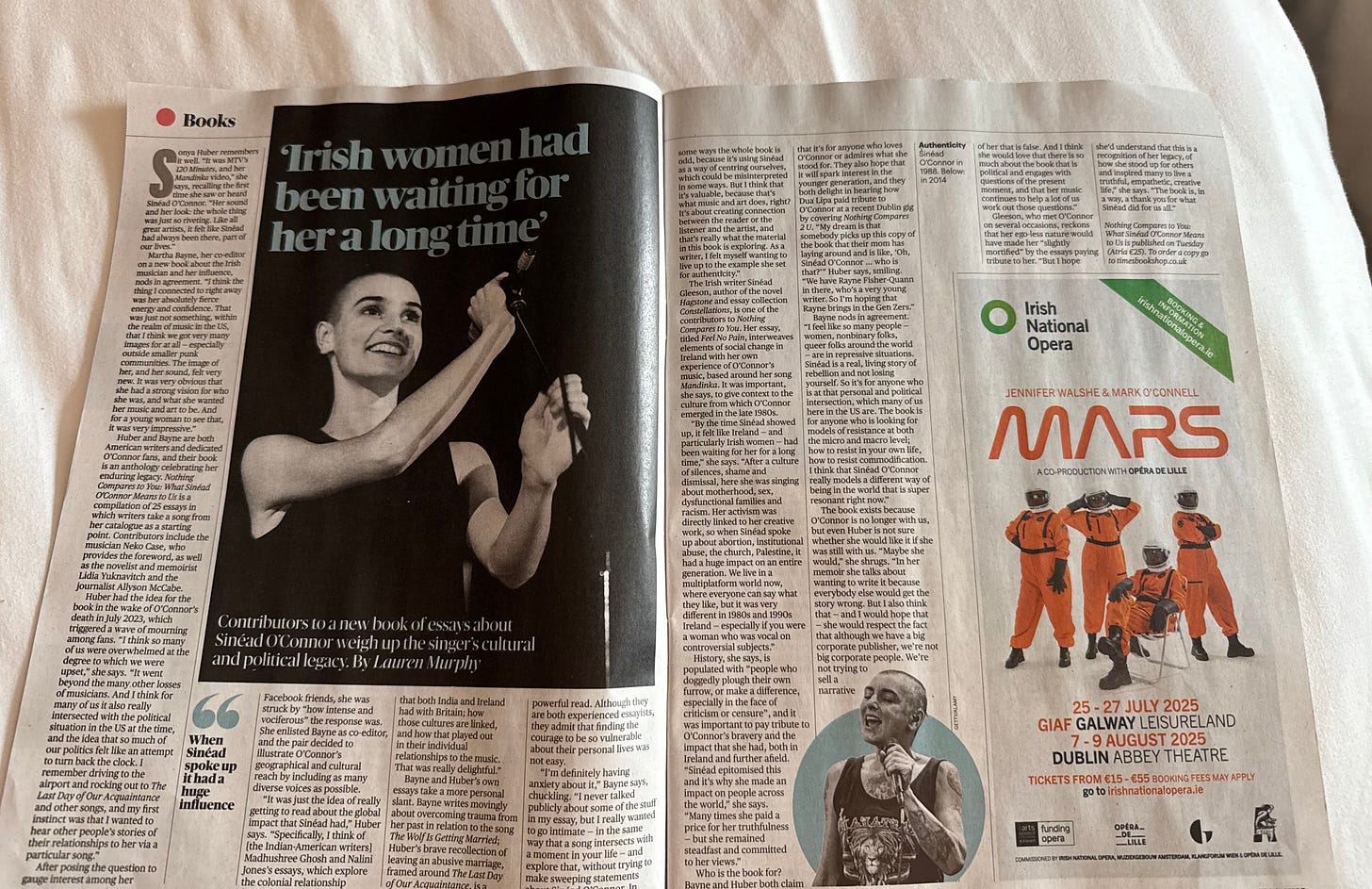On to West Cork
Notes from the Sinéad world* tour, part two
The day after our Dublin book talk we — myself, my sister (along for the ride), and Mieke — hopped on a train to Cork, where we were collected at the train station by a driver for the festival, and transported, along with famed Irish novelist Eimear McBride, to Bantry, almost two hours to the southwest.
I had been hearing about the West Cork Literary Festival for months — we first connected with festival director Eimear O’Herlihy back in October — but I still wasn’t quite sure what to expect. Bantry is a small town, the gateway to the wild and rural Sheepshead and Beara peninsulas that jut out into the Atlantic at the island’s southwest tip, but for a week in July it becomes a hotbed of literary activity. We’d already missed Richard E. Grant and Neil Jordan, but in addition to McBride the lineup the few days we were there included Tiffany Murray, author of the memoir My Family and Other Rock Stars, marine biologist Helen Scales, ornithologist and nature sound recordist Séan Ronayne, so many poets … really, an embarrassment of riches. It’s a wonderful festival, and because the town is so small it makes it very easy to run into the same folks at breakfast, lunch, and dinner; in the hot tub and at the pub. After 48 hours I felt I’d been there a month.
On our second night at the festival Allyson (who drove down with her family), Mieke, and I were joined by music journalist Eoghan O’Sullivan for an evening talk in Bantry’s Merino Church — no longer an active church but a sweet little arts and events space that also sold coffee and fish tacos out of an Airstream in the yard. The conversation was great, the church was packed, we signed a ton of books, and then it was back to the pub with all our new best friends.
It’s a cliché that writing is a lonely practice, and for me it’s been made more so since first covid, then cancer, and, finally, moving to Waukegan, where I am at more of a remove from the Chicago literary community that I was when I lived in the city, even if I probably didn’t avail myself of it as much as I could. I’ve never done a residency, one of the time-honored ways writers get together to talk shop and network. And I don’t even go to many writers festivals or conferences; when I do it’s usually as an editor rather than as a writer myself. I’m pretty happily isolated from the competitiveness that can dog a scene, but all this togetherness over the past week has been a potent drug. The thrill of meeting new people got me so worked up I even went for a plunge in the sea in the rain.
To zoom out for a sec, though, this is also what I love about editing anthologies, or essay collections, as I recently learned this properly would be termed, as “anthology” generally refers to collections of previously published work and this is all original to our book. Anyway, whatever you call them, every book — and at this point I’ve done four of my own, five if you count a community cookbook — creates its own small world. They are community building projects both on the page and, when we’re lucky, in real life, offering the contributors a chance to forge connections that might take the who knows where?
I’m back in Dublin now, and getting on a plane to New York tomorrow morning, and on Tuesday we’ll keep growing the Nothing Compares community. If you’re in town come see us July 22 — our pub day! — at 7 pm at Books Are Magic, 122 Montague St. in Brooklyn Heights. It’s a jam-packed bill, with me, coeditor Sonya Huber, contributors Sharbari Ahmed, Porochista Khakpour, Millicent Souris, and Zoe Zolbrod, and musical guest Monique Bingham. And, in an excellent late-breaking development Una Mullaly, who moderated our event in Dublin a few days ago, will be joining us in Brooklyn for a reprise. Thank you Una!
PS: We were in the Sunday Times today.
*Ireland-NYC-Chicago-Connecticut






Wonderful! (Also, certain parties back stateside are intrigued by "nature sound recordist.")
My maternal ancestors came from West Cork. Always pleased to hear about the vastness of their inner lives, and consequent outer production of artistry. It's a fine lineage, indeed